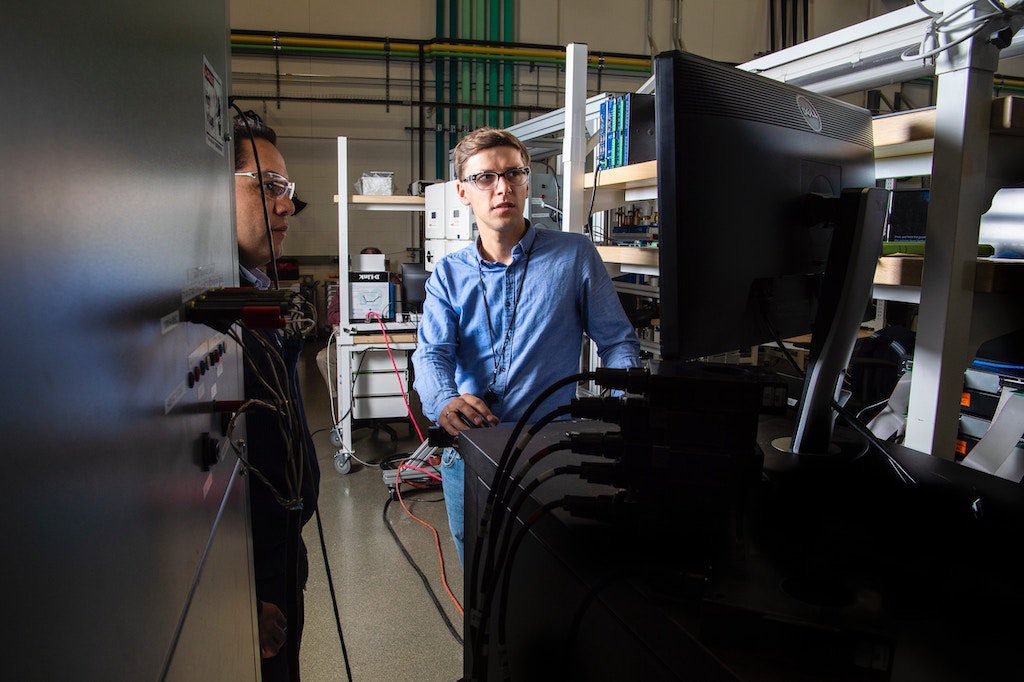
The Institutional Re-engineering of Ethical Discourse in STEM (iREDS) curriculum is a new research ethics training that facilitates interpersonal communications among lab members—students, faculty, and staff—to consider, as a working community, the best practices of their research. The training was developed in direct response to the breakdown of ethics application often lost in the space between classroom lectures and everyday lab practices.
COS recently partnered with the iREDS team to integrate OSF with their latest trial, "A randomized trial of a lab-embedded discourse intervention to improve research ethics.” We asked lead author and co-PI Dena Plemmons (University of California, Riverside) and author Erica Baranski (University of Houston) to share more of their insights into the revitalization of community-oriented ethics training and what they discovered during the trial.
Why the need to re-engineer ethics training at the institutional level?
Dena: Ethics training which is completed alone in front of a computer, as online training is [especially if there’s no additional opportunity to discuss with others what’s been learned in that training], misses the essential aspects of communication and negotiation in exploring ethical responsibilities. Ethics training which takes place in a classroom, while allowing for the possibility of communication, will almost never include the people with whom you do your science, nor will it be directly tied to that science, again missing the piece where it’s necessary to enter into discussion and negotiation with team-mates to mutually decide on ethical approaches and practices in your work. This project brings all those fundamental elements together: the communication and the negotiation in the place where one actually learns and practices one’s science; this approach is, I would argue, a necessary adjunct to other kinds of training.
Why is discourse necessary to promote a more ethically sound research culture?
Erica: Discourse of any kind helps establish and sustain lab culture. Discourse centered around the responsible conduct of research will hopefully work to instill a lab culture where ethical research practices, and open communication around these issues, is the norm.
Dena: We conduct our research in webs of relationships, with different rights and responsibilities; thoughtful, respectful and inclusive communication is crucial to protecting and nurturing those relationships, and to mutually defining those rights and responsibilities.
The iREDS team recently conducted “A randomized trial of a lab-embedded discourse intervention to improve research ethics.” What stood out to you in the study?
Dena: It was heartening to see all the lab members, including the PI, be so willing and eager to engage in these dynamic conversations about data management and authorship. With very, very few exceptions, the discussions involved everyone equally, asking questions, offering experiences and opinions; we saw real inclusion and equality as they together explored the ethical dimensions of these practices, and examined how they as a lab were managing those practices for the best outcomes.
Erica: From a results standpoint, I would say the finding that attitudes and behavior around the topic of authorship changed as a result of our training four and a half months later. Decisions around authorship can be a sensitive and sometimes contentious topic for many labs. Our results demonstrate that discourse around authorship has a fairly strong and positive impact on this incredibly important aspect of the scientific process.
Why was a technology platform (i.e. OSF) used in the study?
Erica: The demonstration of a technology platform was crucial to our training for two reasons. First, it enabled lab members to learn how technology, specifically the OSF, can help streamline the research process while supporting the responsible conduct of research. Second, it served as a visual aid that made the concepts we were discussing more accessible, and the solutions to common authorship and data management issues more obvious.

6218 Georgia Avenue NW, Suite #1, Unit 3189
Washington, DC 20011
Email: contact@cos.io

Unless otherwise noted, this site is licensed under a Creative Commons Attribution 4.0 International (CC BY 4.0) License.
Responsible stewards of your support
COS has earned top recognition from Charity Navigator and Candid (formerly GuideStar) for our financial transparency and accountability to our mission. COS and the OSF were also awarded SOC2 accreditation in 2023 after an independent assessment of our security and procedures by the American Institute of CPAs (AICPA).
We invite all of our sponsors, partners, and members of the community to learn more about how our organization operates, our impact, our financial performance, and our nonprofit status.